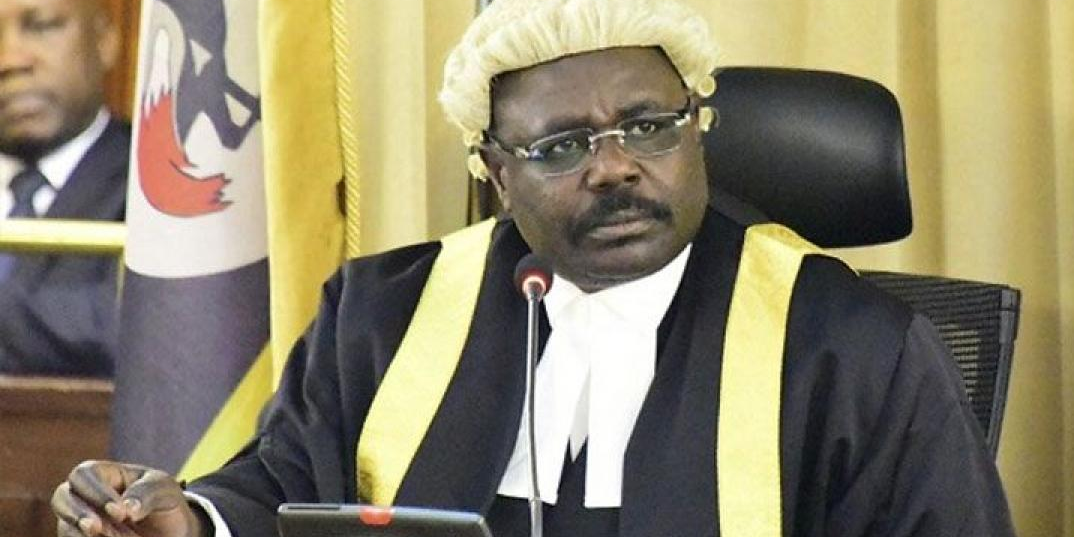The government has signed a contract to immediately procure a Positron Emission Tomography – PET scan for the Uganda Cancer Institute.
Parliament has also appropriated money for the construction of the Nuclear Medicine Unit to house a Linear Accelerator and other treatment units at the Uganda Cancer Institute to reinforce cancer care and treatment. The speaker of parliament, Anita Among directed the Minister for Health to report to the House within two months on the progress of the acquisition of the PET scanner.
The death of Jacob Oulanyah has highlighted the need to improve the effectiveness and timeliness of cancer screening, diagnosis, treatment, and outcomes to provide more cancer prevention and care in Uganda. Oulanyah who succumbed to lymphoma, a cancer of the lymphatic system on March 20, 2022, at a hospital in Seattle, the United States of America where he was admitted for specialized treatment.
Health Minister, Dr Jane Ruth Aceng during a special sitting of Parliament to eulogize the late speaker of parliament, Jacob Oulanyah on Tuesday said in the Financial Year 2022/2023, Parliament appropriated Shillings 45 billion to procure the PET scan. On Monday the Ministry of Health signed a contract for the swift supply of the appliance.
The autopsy report read on the floor of parliament by Dr Aceng indicated that Oulanyah was diagnosed with cancer in 2019. He sought treatment in various hospitals including the Uganda Cancer Institute – UCI, Germany and Dubai.
Why the PET for Uganda Cancer Institute?
The Positron Emission Tomography – also called PET imaging or a PET scan, is a type of nuclear medicine imaging. Nuclear medicine uses small amounts of radioactive material called radiotracers. Doctors use nuclear medicine to diagnose, evaluate, and treat various diseases including cancer.
What is a PET Scan?
- It’s used to help diagnose some conditions including cancer.
- A PET scan uses a mildly radioactive drug to show up areas of your body where cells are more active than normal.
- A PET scan can be more sensitive than other imaging tests.
- It may also show changes to your body sooner.
- Doctors use PET-CT scans to provide more information about the cancer.
- It can also help to find out where and whether cancer has spread.
- For some types of cancer, a PET-CT scan is a way to help find cancer and learn its stage.
- Stage is a way to describe where the cancer is and if it has spread.
- Doctors also learn information about the stage if and how the cancer is affecting your body’s functions.
- Knowing the stage of cancer helps you and your doctor choose the best treatment.
- It can also helps your doctor predict your chance of recovery.
In addition to learning your cancer stage, a PET-CT scan can help the doctor:
- Find the right place for a biopsy.
- Learn if your cancer treatment is working.
- Check for new cancer growth after treatment has ended.
- Plan radiation therapy.
Who does a PET-CT scan?
A technician who specializes in doing these types of scans will do your PET-CT scan.
After the test is done, a doctor who specializes in looking at the test results will look at your scan. This person is a nuclear medicine specialist or a radiologist who interpret the imaging technology. They will decide what the results mean.
How many radiologists does Uganda have?
Uganda has around 50 radiologists, which is roughly one radiologist for every million people. Dr Rosemary Byanyima now the deputy executive director of Mulago National Referral Hospital is one of the most senior radiologists in Uganda. She was also head of radiology department at Mulago from 2008 to 2009.
Radiologists also train to become Interventional Radiologists to do Image Guided Surgery using imaging technology (such as x-ray, CT or ultrasound) to look inside patients and perform minimally invasive procedures also called pin-hole surgery done through a hole the size of a large needle. Gregory Makris, a radiologist from the UK is spearheading efforts to establish IR services in Uganda.
When he was getting treatment at Uganda Cancer Institute, Oulanyah required blood transfusion at his every visit. But Uganda has a chronic shortfall of blood in its health facilities. No money was allocated for Regional Blood banks which is impacting on delivery of health care in the country.
Dr Charles Ayume, the Koboko Municipality MP, who doubles as the Chairperson of the Health Committee of Parliament observed that the Government should equally consider funding the stocking of Regional Blood Banks following a shortage of 150,000 units of blood.
In 2018, available statistics indicated that up to 32,000 new cases and 21,000 deaths were caused by cancer and 56,238 people were living with cancer in Uganda. Some of the top seven cancers in Uganda include cancer of the cervix, breast, prostate, liver and oesophageal which account for 70 per cent of new cancer cases.

